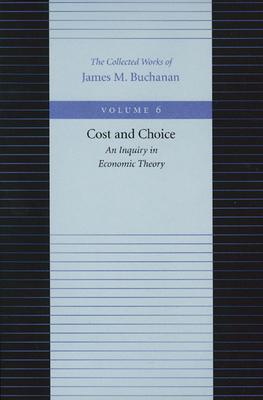While relatively short, Cost and Choice, according to Hartmut Kliemt in the foreword, "holds quite a central place in Buchanan's work. For the fundamental economic notion of 'cost', or 'opportunity cost', is intimately related to the individualist and subjectivist perspective that is so essential to the Buchanan enterprise."
To be sure, the Austrian School of economists enunciated similar views of cost decades before Buchanan, but Buchanan advances his theories by attempting to integrate his views into the orthodox classical and neoclassical framework.
When he published the book in 1969, Buchanan hoped that other scholars would follow him in researching the opportunity-cost concept and its applications. Unlike the theater of public policy, where Buchanan's work is widely celebrated and influential, his important work on the issue of cost and choice, so clearly explicated in this volume, has done little to move the mainstream of economic thinking in the thirty years since its original publication. It is hoped that this new edition of Buchanan's seminal work will place Buchanan's groundbreaking ideas in wider circulation.
Buchanan writes in the preface, "My aim is to utilize the theory of opportunity cost to demonstrate basic methodological distinctions that are often overlooked and to show that a consistent usage of this theory clarifies important areas of disagreement on policy issues."
James M. Buchanan (1919-2013) was an eminent economist who won the Alfred Nobel Memorial Prize in Economic Sciences in 1986 and was considered one of the greatest scholars of liberty in the twentieth century.
